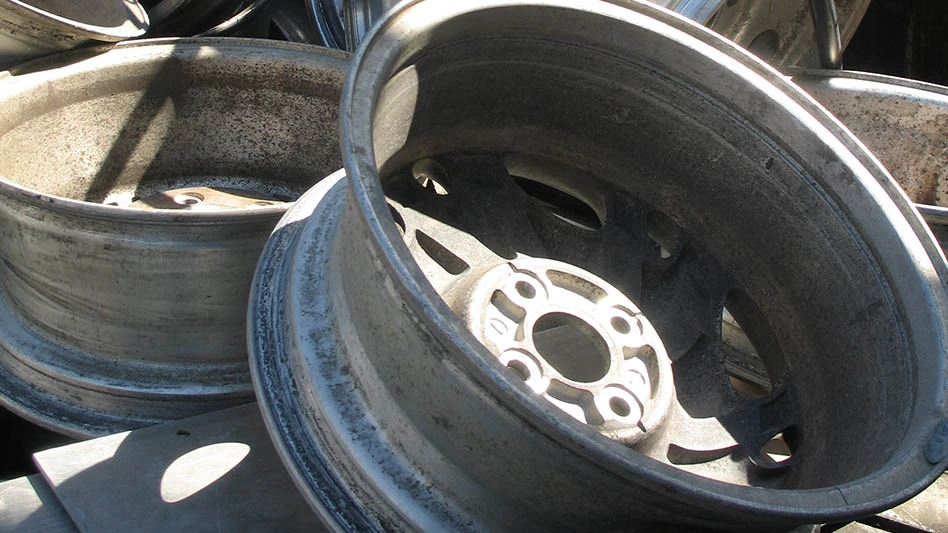Neil Chalupa
Trader at Metal Conversions

Neil Chalupa did not intend to pursue a career in the scrap industry while studying for his undergraduate degree in business administration at the University of St. Francis in Fort Wayne, Indiana, but he says one of his professors, who also was an executive at Fort Wayne-based Steel Dynamics Inc. (SDI), piqued his interest in the industry.
“In our capstone class, we actually got to take a tour of SDI’s Butler plant” in Indiana, Chalupa says. “It was that moment I thought it was incredible. Just seeing the coils of steel and metal and just the melting and burning process was something that fascinated me.”
Before joining the scrap industry, Chalupa says he spent a few years working at Spot Freight, which is a third-party logistics company based in Indianapolis. “I knew I wanted to get into logistics and supply chains,” he says.
He adds that spending a few years working for a logistics company helped him as he transitioned in 2018 to Westerville, Ohio-based Metal Conversions, which specializes in buying and selling aluminum scrap. “I understood how materials moved and the trucking side of things, which made the transition easy.”
Chalupa started in a logistics role for Metal Conversions and today serves as a trader for the family-owned scrap company. He shares some lessons he has learned in his four years of working in the scrap industry as well as his perspectives on logistics-related challenges.
Recycling Today (RT): What are some lessons that you have learned in your time at Metal Conversions?
Neil Chalupa (NC): Try to find friends that you happen to sell metal to. When I started some cold calls, there would be some people who would say, “Oh, well I’ve sold to this guy for 30 years, and our families go on vacations and spring break all the time.” I saw the relationships that other traders and my co-workers had, and you can just tell that they talk more as friends on the phone than business with these customers. You’re checking on their families just like you would with friends and relatives. When I took that approach of trying to talk to people as friends instead of customers, I found myself enjoying it more. I found that people were willing to talk to me more instead of just like another person calling. It was just putting in a little extra time and effort and attention.
RT: What is a big issue the scrap industry is facing right now?
NC: Trucking is a big issue. And that’s not just since the pandemic. I saw that [as an issue] when I was working at Spot Freight in 2017. As a nation, we’re just short on truckers. I don’t know anyone that’s around my age that wants to be a truck driver. Everyone wants to stay home and see their family every night, not sit in a truck for 14 hours and just drive. They want to be in the office. So, I think there’s an issue there that’s not going to go away anytime soon and needs to be figured out.
RT: Having experience in logistics and trucking from your time working at Spot Freight, what do you think is a possible solution to the current trucking challenges?
NC: I think everything is becoming more regionalized. You’re still going to need some of the long hauls, but if you could try to limit people to maybe one night where they have to stay overnight and get them back home every other night and not work the weekends, I think that would be something that would improve things.

Explore the January 2022 Issue
Check out more from this issue and find your next story to read.
Latest from Recycling Today
- Steer World offers PEX plastic recycling machine
- New recycling grant program launches in Massachusetts
- Tire Recycling Foundation names executive director
- Dock 7 named 2025 Exporter of the Year at New Jersey International Trade Awards
- Waste Connections reports ‘better than expected’ Q1 results
- Commentary: How EPR is transforming the packaging industry
- Acerinox names new North American Stainless CEO
- Greenwave closes 2024 books with red ink







